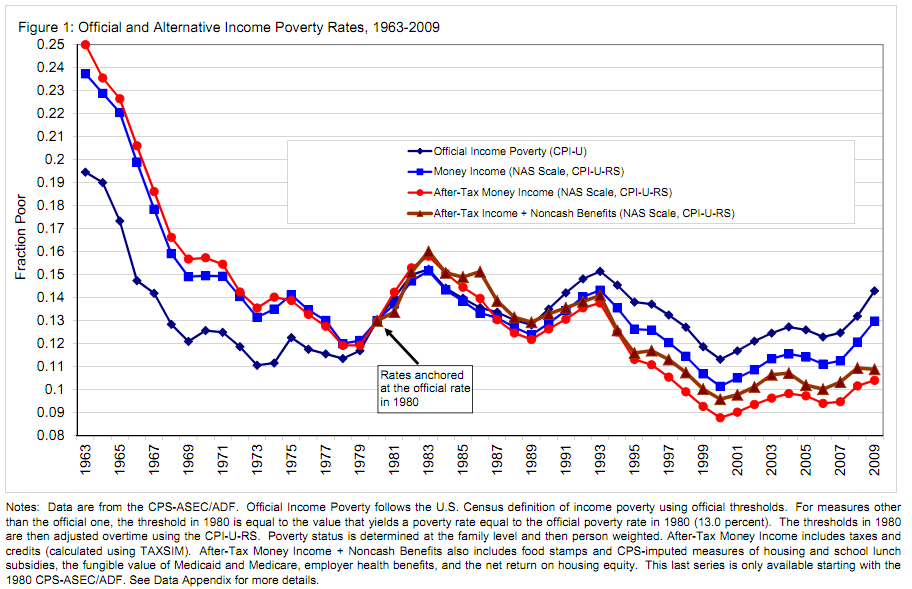No, the $500 is not defined by the poverty rate. It would approach 50% of the current poverty rate, but not quite. It is, as best I can tell, a fairly arbitrary number based on available funds and the desired sample size. There is no methodology provided as to how they came by the number.
Then go back and reread it. I didn't tell you how I feel, I gave you facts, which you are free to research yourself and verify or simply take me at my word. It's not a "feel".
As far as alternatives, there's a few ways economists measure it (and, btw, are pretty universal in their agreement the census poverty rate is garbage). Rather then reinvent the wheel, read:
A broad overview of an alternative:
https://www.brookings.edu/opinions/h...asure-poverty/
and for a discussion of alternatives and the various pros and cons of the more common measurements:
http://freakonomics.com/2011/09/14/w...r-consumption/
Or if you want to go way down the rabbit hole, you can start looking at "multi-dimensional" measurements, which include things like infant mortality rates (an indication of poor nutrition and lack of access to health care)
Very broadly speaking, various income counting methods are the easiest to measure but the least reliable. Consumption is harder to measure, but more reliable and allows for regional differences (how much is spent on housing in NYC vs tiny town USA, which isn't counted in income-only methods). Multi-dimensional is, in theory, the most accurate but also the hardest to measure and the most open to interpretation (what's included, and how is it weighted? Is renter vs home owners weighted higher or lower than access to health care?)
As to which is "best" or which we should use to evaluate this experiment...I don't know and I doubt you or I are going to have the raw data and apply the methodology ourselves. We'll have to see what methodology the people running the experiment choose, and evaluate it from there.




 Reply With Quote
Reply With Quote





